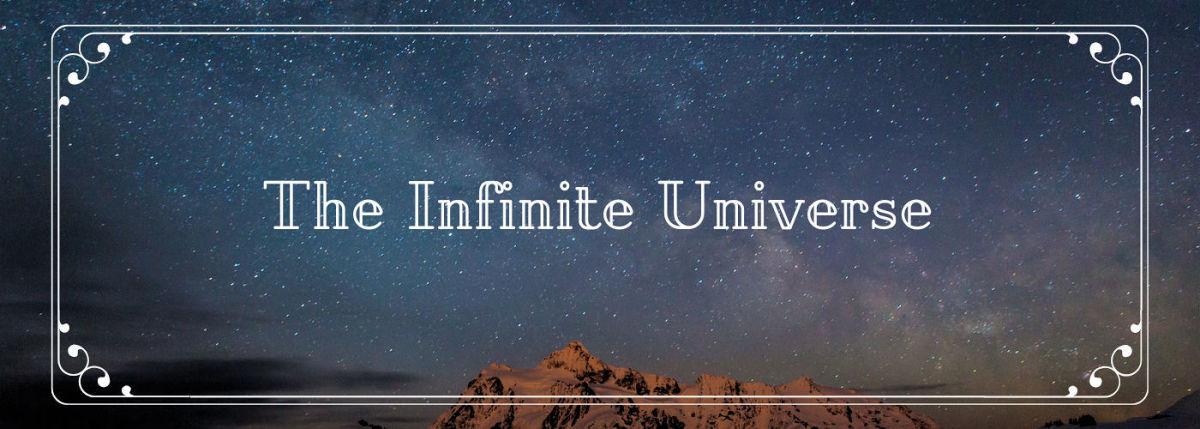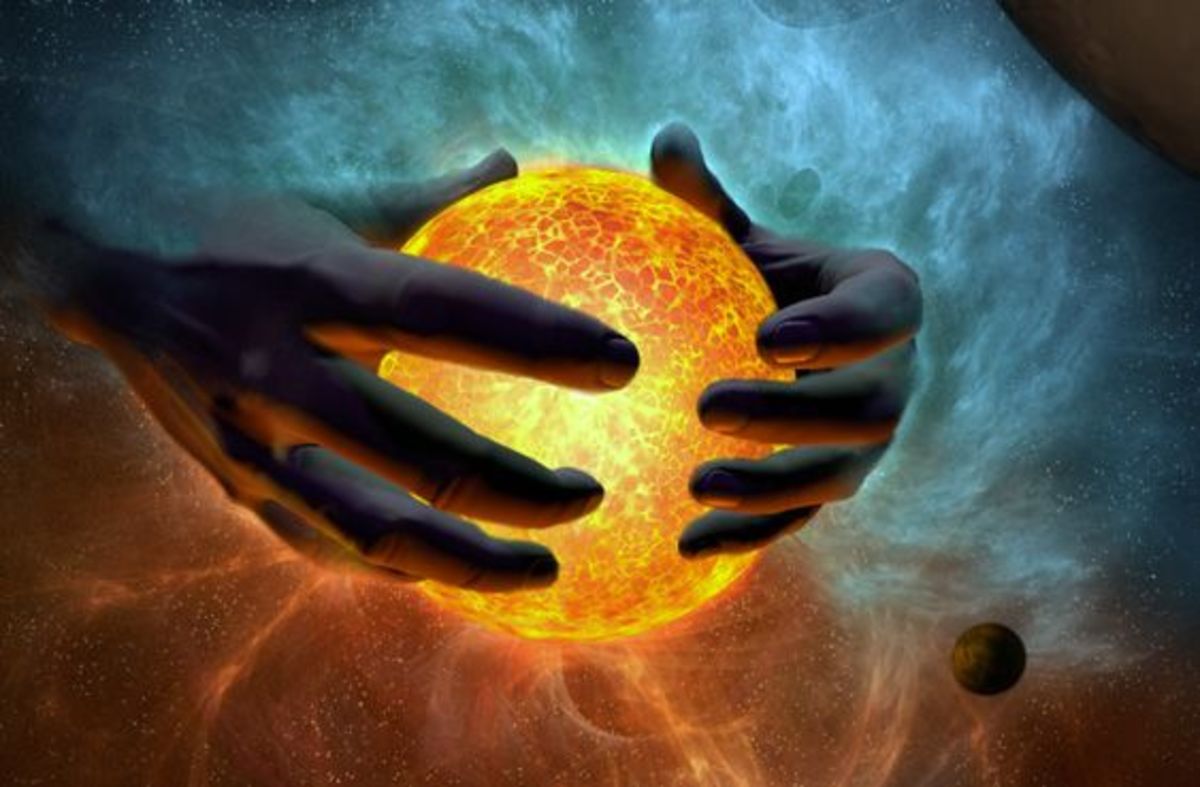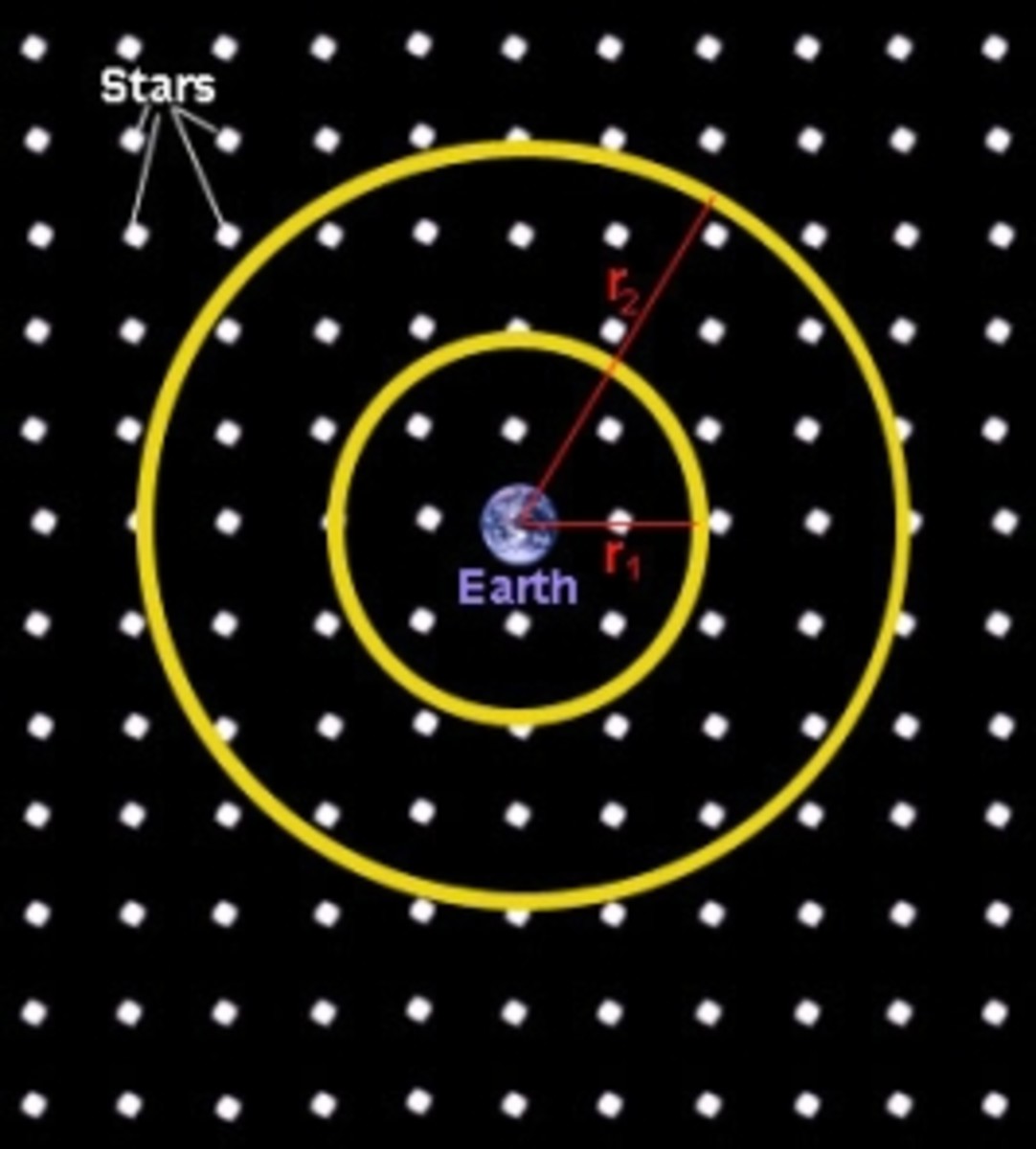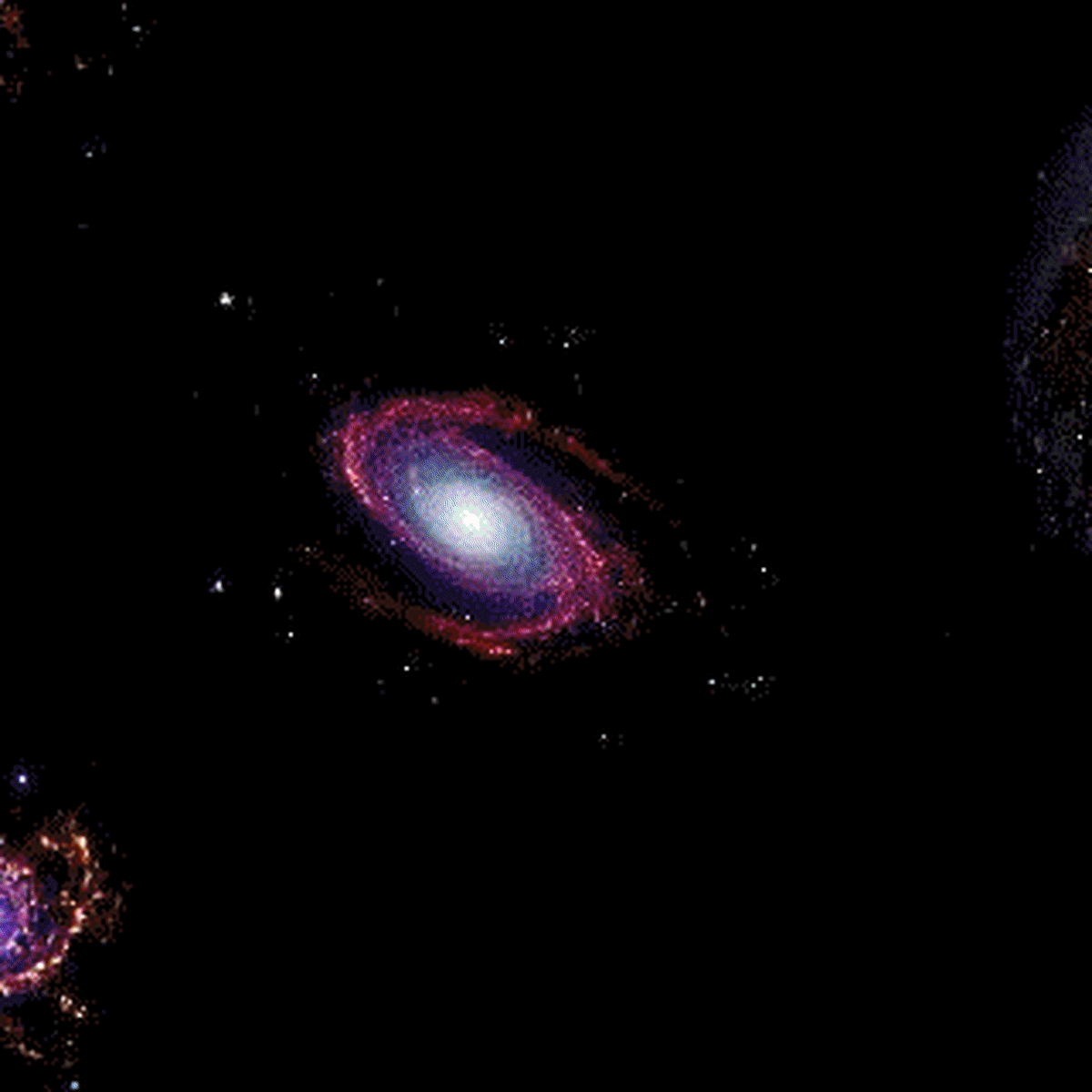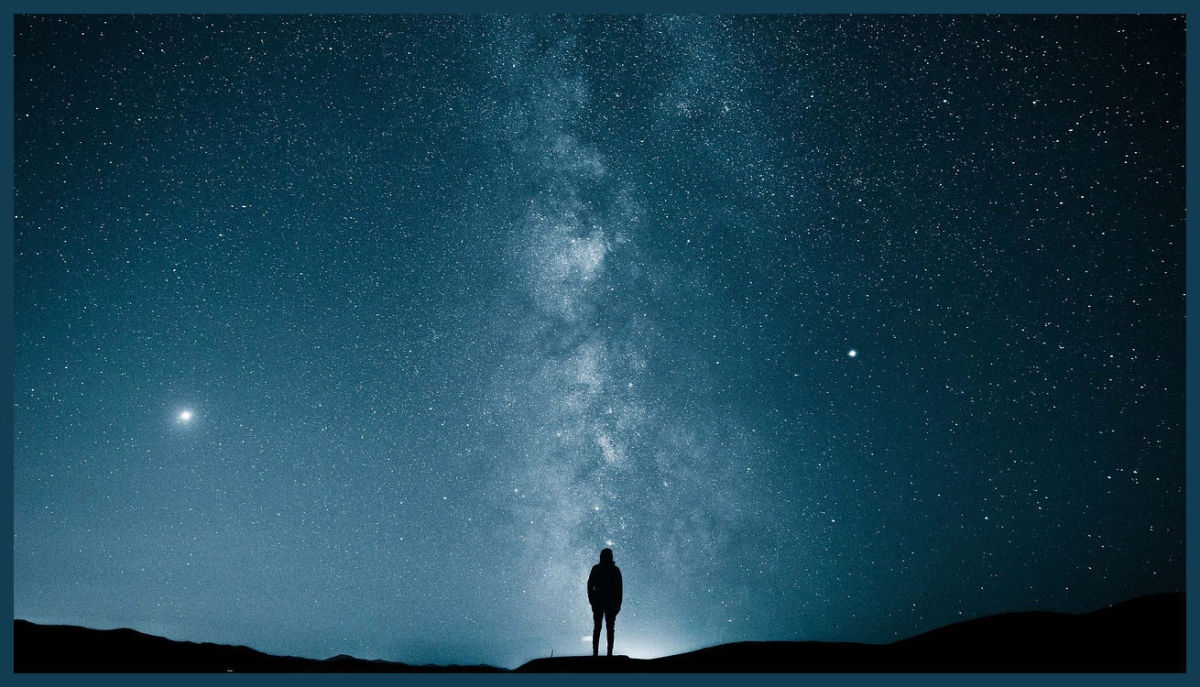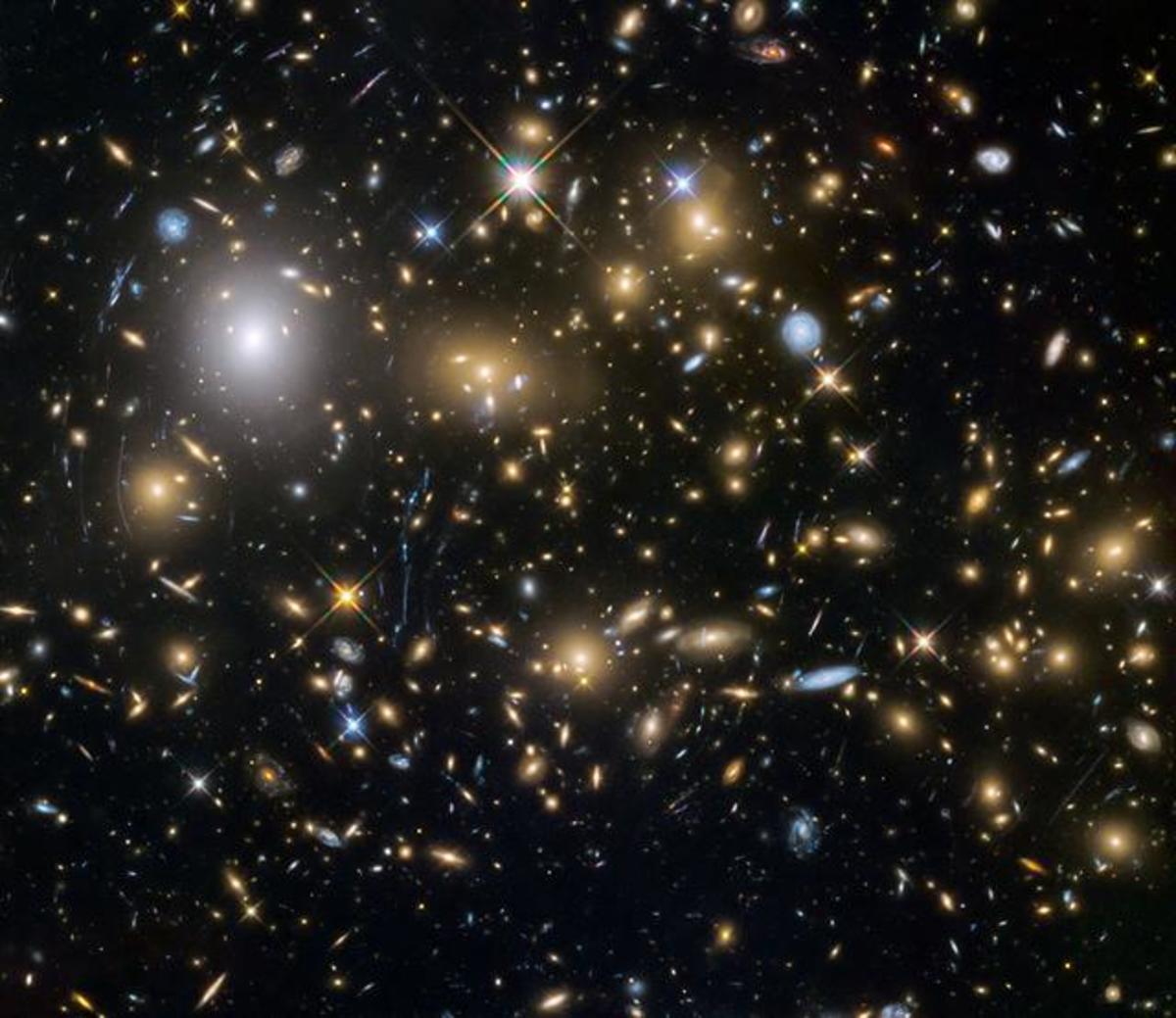Is the Universe Like a Ms. Pac Man Game?
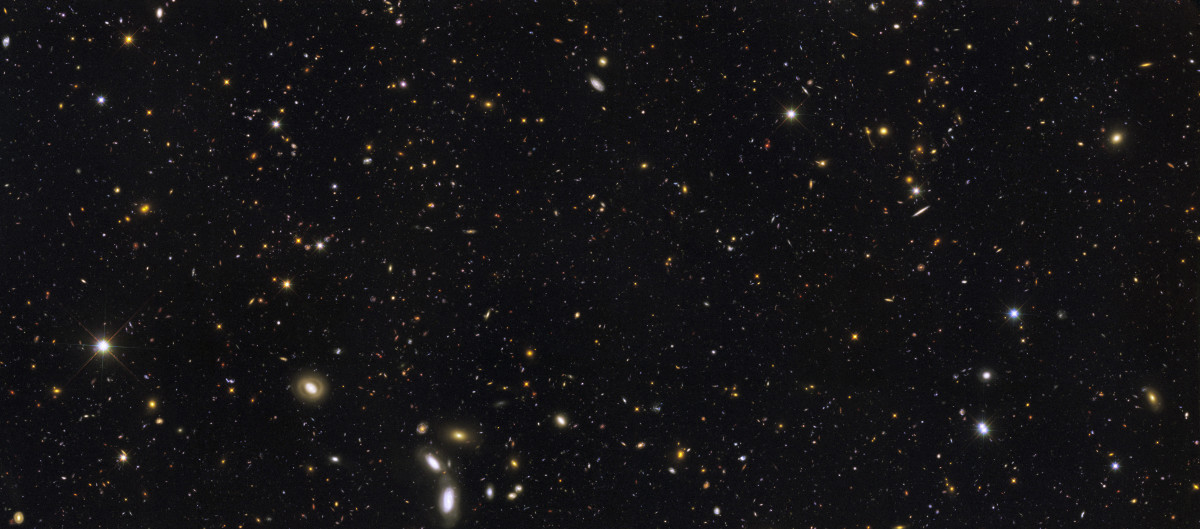
Simplified big words
There they go again, those physicists – using fancy words to explain a phenomenon or concept. How can it be simplified? It’s actually really simple, as it turns out: the concept of a finite universe means that there is a limited amount of stuff and space in it, and the concept of an unbounded universe means there is no outer limit whatsoever.
But aren’t these two concepts seemingly contradictory? If that thought occurred to you while you were reading my brief description above, then you’re more than ready for this thought experiment: the finite but unbounded universe. And you are in a real treat, because this is one of my all time favorite things to think about. Let’s get started!
Vote
Do you think the universe is:
Basic definitions in everyday terms
If there is a finite amount of matter in the universe, that’s a concept we can pretty easily understand. “Matter” is just a description of “stuff”, and it might as well be replaced by the word “marbles.” If you have a finite amount of marbles, whether it’s one, two, 20, 200, or 200,000,000,000,000,000, you can eventually count however many marbles there are, given enough time. Okay, so far, so good.
“Unbounded” means that there is no boundary. It’s far easier to imagine a universe that is “bounded”: think about reaching the end of all the matter in space, and beyond that is empty space. Or beyond that is nothing, not even space (and that’s where things start to get a little harder to understand, but we don’t have to go down that particular rabbit hole today). You could even imagine some kind of imaginary wall at the "end" of space, beyond which there exists nothing. That's exactly the "bounded" concept.
Unbounded universe and 80s video games
However, we’re talking about an unbounded universe. In other words, if you travel in a straight line for a million billion trillion years, you’ll never reach the end of space (or of matter, in the simplified example we’re using). How can we reconcile the unbounded universe with a finite amount of matter and space?
Simple: Ms. Pac Man.
Ms. Pac Man is an awesome game, and so much better than Pac Man! But let’s not get too nostalgic or nerdy here (who am I kidding? We are totally nerding out right now). When she moves through a tunnel on the left hand side of the screen, she comes out all the way over on the right hand screen (a trick all of us have likely employed in our urgent evasion of ghosts who are no longer blue!).
That’s what a finite but unbounded universe is like! You would keep on going so far on the left hand side that you’d come out on the right hand side, only it would be nothing like going through a tunnel. You’d just keep going as normal, traveling from star system to star system, chatting it up with the local Xarbaxes and Yerwobs.
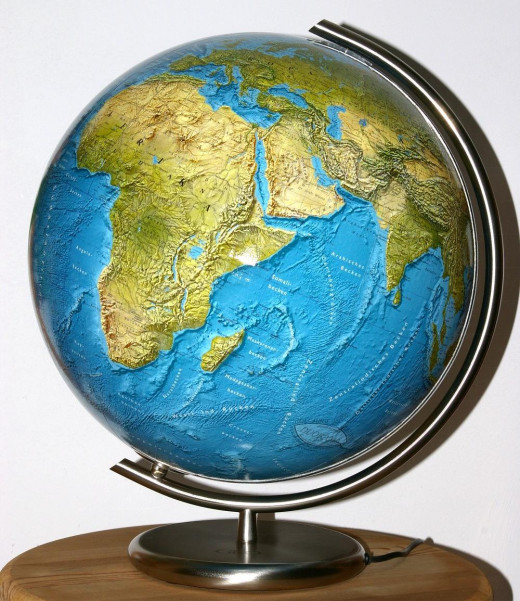
The globe and the universe
If the video game scenario doesn’t do it for you, we can take an example from everyday experience. We all know that our planet isn’t flat; it’s spherical. If you travel in a straight line, though, eventually you will come right back to where you started after the 24,901 mile journey. I've written a bit more on the scale of the earth as it relates to other local cosmological bodies, so feel free to check that out as well.
With the planet earth analogy, you can imagine that if you were very close to the ground, and didn't have much concept of what "up" or "down" is, you might sort of think of the earth as a flat surface (as humanity no doubt did for the vast majority of its existence). Coming around to the other side, then, would be quite a nonintuitive surprise, but it's hardly surprising when you think about it from the perspective of someone further away.
As far as the universe goes, if you were traveling at a very, very fast speed, a long, long time would still have to pass before you were able to go all the way to the other side of the universe, and then another mini-eternity would have to elapse before you got back to your starting point, but you’d eventually get there in our finite but unbounded universe.
Important

Important
It is important to note that I'm not suggesting that the universe is a sphere at all, or that we're on some sort of globe. Instead, the universe (and space) simply is, and if you travel in a straight line, you'll get back to where you started, because that's how things work (assuming the universe is unbounded, of course).
Scientists have, in fact, investigated this phenomenon to see if there is any evidence for it, but so far, they have come up empty handed. Here’s what they’ve done: they looked for repeating patterns of galaxies on the opposite side of the sky. If the universe was finite and unbounded and the light had had enough time to travel all the way from one side of the universe to the other side, we’d see the light again on the opposite side. That’s a pretty big if, though, because our visible universe is nearly 100 billion light years across. It hasn’t necessarily gained favor, but the finite and unbounded hypothesis also hasn’t been disproven. Pretty cool, right?
An amplifying effect
I really, really enjoy thinking about this particular nugget as I'm falling asleep. I like to imagine traveling at the speed of light, having no mass, and thus not feeling the effects of time whatsoever (although, to make my brain happy, I imagine that I can still peek around outside during transit). I eventually get back to my starting point, and lo and behold, I go right on traveling across the universe again, ultimately coming back a second time to where I started.
If I was an individual photon, I'd simply make the trip across, then keep on going, just being a point particle (as Einstein first postulated in the early 20th century). From my standpoint, it would just be a really simple, straight line of a ride. But what about if someone was observing light emitted by a star, say, from across the universe?
They might see an amplifying effect, making the star look much, much brighter (and thus, much closer) than it actually is. If the light went all the way across the universe, and you were roughly- although not quite exactly- parallel with the light's beam, you'd see the same light coming through again and again.
Suppose our star is 10 billion light years away. You'd see brand new photons coming out from the star's core- well, brand new to you, having "just" been generated by the star 10 billion light years ago (and remember, the photons are brand new from their own standpoint as well, not experiencing any time). In addition to these "new" photons, you'd also see a line of "old" photons from the previous cycle through the universe, and these photons would add (potentially many times over) to the perceived brightness of the star you're checking out!
Additionally, the light from a star might appear numerous places in the night sky, as previously mentioned. However, the reason why we don't think this is happening is that the observable universe is pretty big, to say the least, and the amount of time light has been traveling across this vast distance is only 13.7 billion years or so. Light simply wouldn't have had time to reach across the universe a second time.
Speculation and conclusion
Ultimately, we don't have the answer as to whether the universe is finite or infinite, and whether it's bounded or unbounded. We do, however, know that it's a pretty big place at a minimum. We also have some vague idea what it's made of and about the properties of the maximum speed limit. On the other hand, there are so many mysteries left to solve, and that's what Thought Experiments to Help You Fall Asleep is all about!
Even though it's only speculation right now, what do you think: is the universe bounded or unbounded? Is it finite or infinite? It's well worth thinking about, even though we don't currently have the means to test out these hypotheses, we may well one day know for certain. Thinking like this, while it may only help you fall asleep at night, may also lead to the ultimate discovery and subsequent answer!

